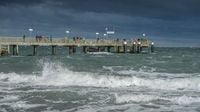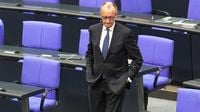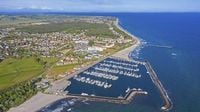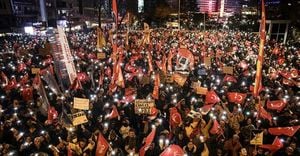The CDU-Stadtverband Kühlungsborn in the district of Rostock has made headlines following a significant resignation event that has triggered considerable political ripples in the region. On March 25, 2025, nearly all members of the local CDU chapter announced their immediate resignation, voicing substantial dissatisfaction with party leadership under Friedrich Merz and key party decisions.
In a collective statement, 18 long-term CDU members, including the Stadtverbandsvorsitzende Katrin Ziesig-Wendt, expressed their dismay at what they describe as a violation of the party's founding principles. Their letter, made public shortly after their resignation, emphasized that fundamental issues affecting their core values had prompted this drastic action.
Among the contentious issues cited by the resigning members is the perceived erosion of the "debt brake," which they claim is at the heart of the CDU’s identity. They noted, "The debt brake is the DNA of the CDU. Through the current change to the Basic Law, this has been effectively abolished." This sentiment reflects broader frustrations within the party regarding fiscal responsibility and the implications of recent policy shifts.
Furthermore, the introduction of a goal for climate neutrality by 2045 into the Basic Law was characterized by the resigning members as a stepping over a crucial line. They stated, "Political objectives of this magnitude do not belong in the constitution, but rather in democratic debate," highlighting their belief in the necessity of public discourse over constitutional commitments.
The dissatisfaction doesn’t stop at fiscal policy; the members also criticized the party's current stance on migration policy, claiming it lacks the effectiveness and rigor they hoped to see. They urged the party strategists to drastically reduce pull factors for migration, voicing that they find no substantial progress with the SPD as coalition partners.
Despite their departure, the former members conveyed a sense of regret, acknowledging the strong foundation of their work within the CDU. "We wish the CDU better luck in the coalition negotiations to avoid further waves of resignations within the CDU," they remarked—a poignant acknowledgment of the potential fallout this split may cause not only locally but also at higher levels of party politics.
In response to the resignations, Kreisvorsitzende Katy Hoffmeister asserted that despite the sudden exodus of nearly the entire local board, the CDU-Stadtverband Kühlungsborn would remain operational. She expressed her intention to begin discussions regarding new board elections swiftly to restore functionality to the local chapter. "The local association will quickly discuss the re-election of the board so that the association can regain its necessary strength," Hoffmeister commented.
This mass resignation is indicative of larger tensions within the CDU, as members grapple with key leadership decisions and party direction under Merz. He is faced with increasing pressure to unify party priorities amid complex coalition negotiations. With these political intricacies unfolding, the concerns raised by the Kühlungsborn members may resonate widely across the political landscape in Germany.
The CDU's recent challenges reflect an ongoing struggle between established party ideals and the evolving demands of a changing political environment. As the party seeks to navigate these turbulent waters, the situation in Kühlungsborn serves as a stark reminder of the deep fissures that exist within the ranks of the once-united CDU.
In conclusion, the significant shift within the CDU-Stadtverband Kühlungsborn not only reveals local controversies but also mirrors nationwide concerns about political identity and the direction of fundamental party policies. Whether this will lead to further resignations or motivate internal reforms remains to be seen as the CDU continues to address the challenges posed by its membership and the current political climate.









